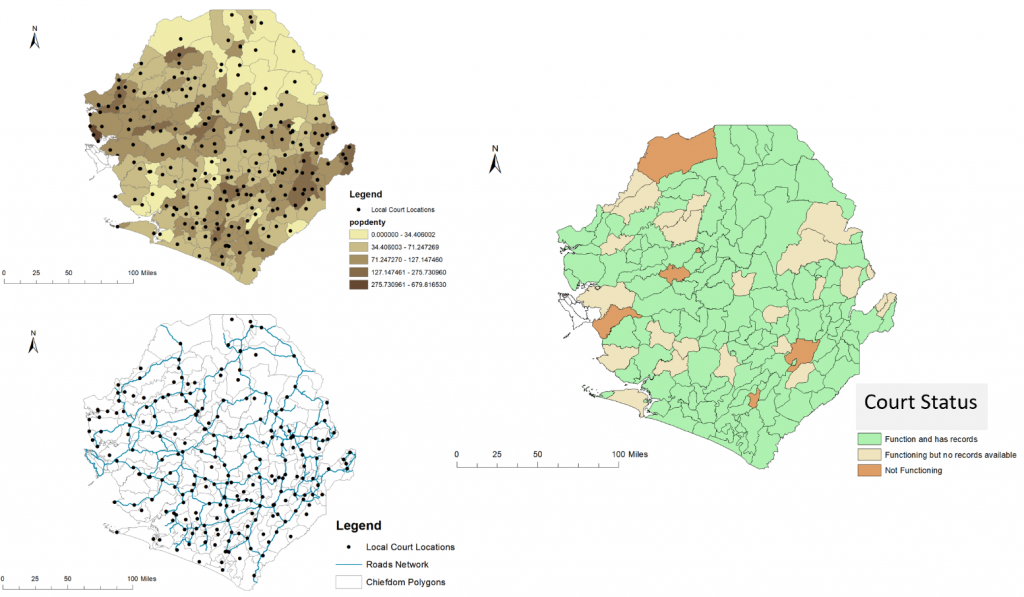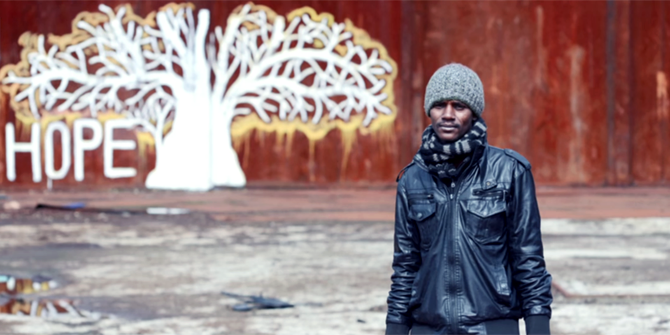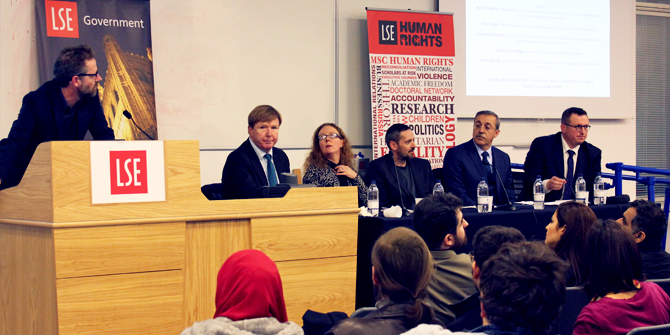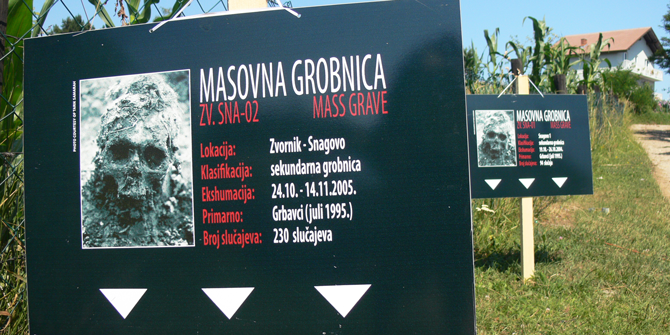Henry Musa Kpaka explains how his research on land conflict is having an impact on government policy regarding access to justice in rural areas in Sierra Leone.
The last 5 years have seen a significant rise in open conflict over land in Sierra Leone, which most news media in the country blame on large commercial land deals. In 2017, the government decided to split up some Chiefdoms (the lowest government administrative unit) with the aim of reducing conflict or potential conflict. However, recent research (Acemoglu et al. 2014) has highlighted that competition among elites in the Chiefdoms of Sierra Leone was associated with better development outcomes.
Through my ongoing PhD research, I have made a deliberate effort to engage the relevant policy makers in my fieldwork with the aim of informing policy and government in the justice sector. My initial hypothesis was that the degree or intensity of competition among local elites for the Paramount Chieftaincy position was likely to contribute to conflict or conflict potential. I decided that conflict over land and the incidence of other civil disputes were indicators I would use to measure conflict in the Chiefdoms.
Without the resources to conduct a large household survey, I decided the best solution was to obtain the information from records of local court proceedings, the advantage being that I could capture conflict measures at the Chiefdom level over time. However, neither I nor the government knew how many local courts were in each Chiefdom, which ones were functioning and if they had any records at all. In my initial pilot in October 2018, I was told by some court clerks that there was a preference for disputes to be solved at informal levels first. This signalled that whatever information I observed at the courts would be a gross underestimation of the incidence of disputes. Research from civil society organisations working on justice in the country also confirmed that only a small fraction of disputes are brought to the formal court system.
In a patriarchal society such as Sierra Leone, an informal channel for settling disputes is less likely to work for disadvantaged groups, such as women, to have access to justice. This was a concern for policy makers at the Ministry of Justice. In addition to collecting and documenting case records at the courts, it also became important for my research to map all court locations with the aim of determining whether they are optimally located with a distribution giving most people the opportunity to access justice.
Using grant funding from the International Growth Centre, I hired university graduates to travel across the country to geo-spatially map all local courts, as well as to collect court records and other metadata, such as tenure of court clerks or court chairmen (judges), the costs involved to file cases, and length of time to resolve cases.
In June 2019, I presented the data (see Chart 1 below) and my preliminary findings to key stakeholders in the Cabinet of the new Sierra Leone government, including the Chief Minister (representing The President), The Attorney General and Minister of Justice, civil society organisations working in the justice sector and the media.

The data forms the basis of an e-governance effort by the Government of Sierra Leone. It was used by the Directorate of Science Technology and Innovation (DSTI) to launch a GIS portal that shows points of public service delivery such as courts, hospitals and schools. The launch was reported by various news media outlets, including a press release from the Office of the President. The Attorney General and Minister of Justice also stated that the works will form the basis of broader research and government effort to ensure people in the rural areas also have access to justice. The Minister voiced commitment to engage with this work, especially around the demand for justice. She noted that she would like to know how local people make choices about where to bring their cases, which is both a theoretical and practical question. This research is timely as the government is moving to launch a Justice Innovation Centre that aims to use digital tools and research to increase access to justice for all in Sierra Leone.
Engaging with policy makers in the Office of the President, the Ministry of Local Government and the Chief Justice during fieldwork led to productive surprises that shaped and informed my fieldwork in new ways. Through these engagements, I was provided with invaluable access to conduct further research and was able to explore alternative questions that were and are important to both theory and policy.
Henry Musa Kpaka is a PhD student in the Department of Government at LSE. His research interests include the study of colonial legacies of political institutions and their effects on social and economic outcomes.
Note: this article gives the views of the author, and not the position of the LSE Department of Government, nor of the London School of Economics.






